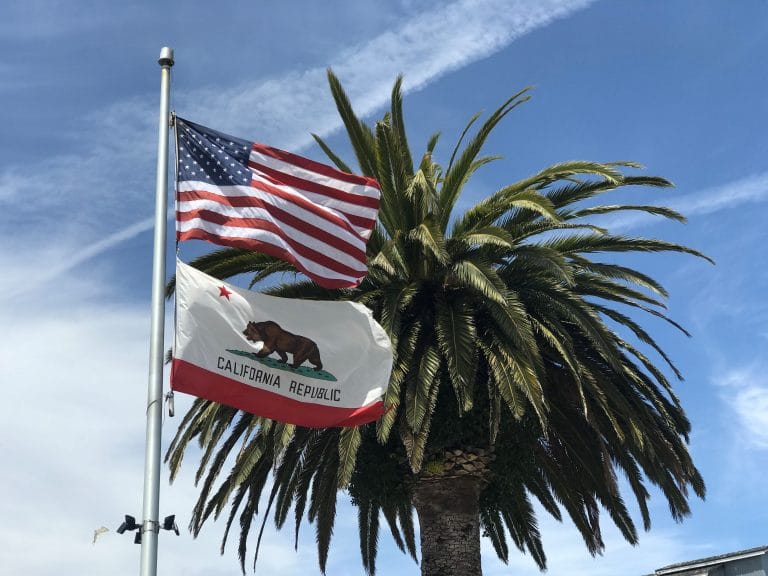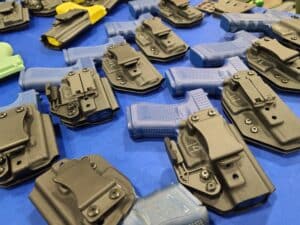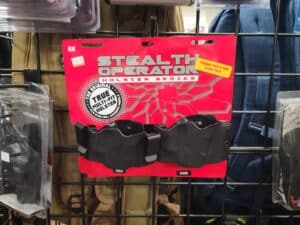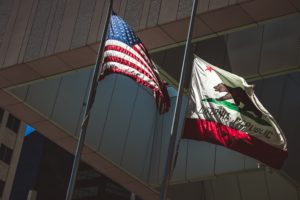California’s new concealed carry law is “sweeping, repugnant to the Second Amendment, and openly defiant of the Supreme Court,” a federal judge has ruled.
U.S. District Judge Cormac J. Carney issued a preliminary injunction against California’s SB2 on Wednesday. The order prevents California from banning licensed gun carry in dozens of so-called sensitive places, including parks and private property open to the public.
“CCW permitholders are among the most responsible, reliable law-abiding citizens,” Judge Carney, a George W. Bush appointee, wrote in May v. Bonta. “They have been through a vigorous vetting and training process following their application to carry a concealed handgun. The challenged SB2 provisions unconstitutionally deprive this group of their constitutional right to carry a handgun in public for self-defense.”
The ruling makes California the latest state to have its attempt to head off the impacts of the Supreme Court’s 2022 decision in New York State Rifle and Pistol Association v. Bruen deemed likely unconstitutional. It comes on the heels of similar rulings against nearly identical restrictions passed in New York, New Jersey, Hawaii, and Maryland.
Wednesday’s decision deals a particular blow to the ambitions of California’s gun-control advocates because it blocks the bulk of the state’s Bruen-response law before it even takes effect. The remainder of the law, including the new training and application requirements it imposes, will take effect on January 1, 2024.
Judge Carney’s ruling stops California’s attempt to impose a wide variety of gun-free zones where even licensed gun carry is a crime. Locations affected by the order include medical facilities, public transportation, establishments where liquor is sold, public gatherings, playgrounds, parks, Department of Parks and Recreation and Department of Fish and Wildlife property, casinos, stadiums and arenas, libraries, amusement parks, zoos, museums, places of worship, financial institutions, certain parking lots, and commercial establishments.
In each case, Judge Carney determined that the government of California failed to provide a compelling historical analogue showing that the modern location restrictions fit within the nation’s historical tradition of regulating firearms in sensitive places—a key requirement of the legal test established in Bruen.
He also criticized the sheer number of locations the law deemed off-limits to gun carry, which he said “effectively abolished” the right to bear arms in the state.
“SB2 turns nearly every public place in California into a ‘sensitive place,’ effectively abolishing the Second Amendment rights of law-abiding and exceptionally qualified citizens to be armed and to defend themselves in public,” he wrote.
Ten separate gun rights organizations challenged the law, including the California Rifle & Pistol Association, Firearms Policy Coalition, Gun Owners of America, and Second Amendment Foundation. Individual plaintiffs included YouTube commentator Reno May, after whom the case is named. They celebrated Wednesday’s decision.
“This is a great day for Californians and human liberty,” Brandon Combs, FPC President, said in a statement. “The court’s decision is both well-reasoned and the required result under the Constitution and binding Supreme Court precedent.”
California Attorney General Rob Bonta (D.) criticized the ruling and said it would make the state “less safe.”
“If allowed to stand, this decision would endanger communities by allowing guns in places where families and children gather,” Bonta said. “I have directed my team to file an appeal to overturn this decision. We believe the court got this wrong, and that SB 2 adheres to the guidelines set by the Supreme Court in Bruen. We will seek the opinion of the appellate court to make it right.”
UPDATE 12-21-2023 12:25 AM EASTERN: This piece has been updated to include comment from the California Attorney General’s office.






